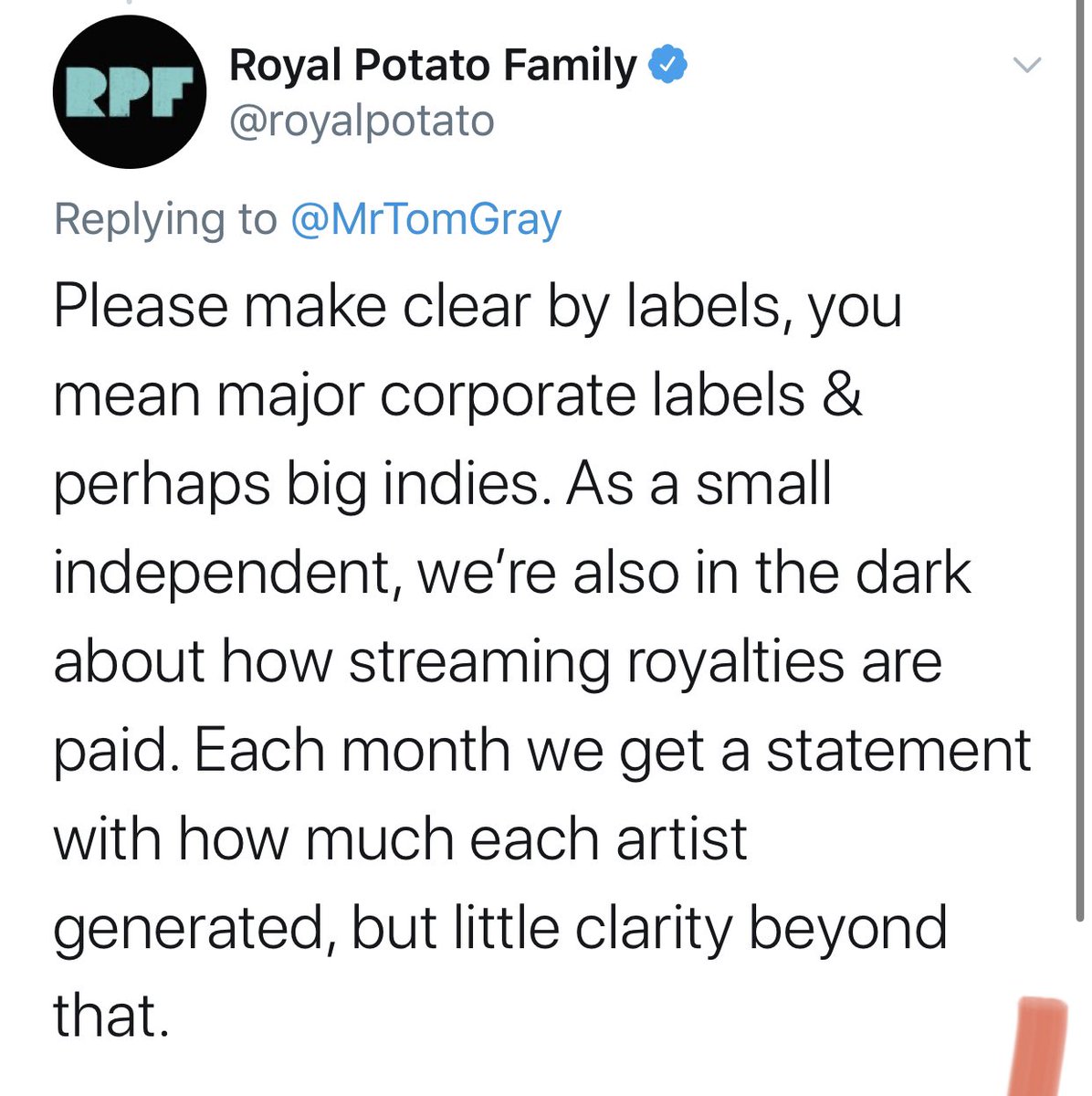The thread many of you requested. It gets a bit sticky, tricky and puzzling, but that’s the point.
What makes telling this so hard is these deals are hidden behind NDAs for “reasons of commercial confidentiality”.
the service sets aside a chunk of money for a label or distributor based on what percentage of overall listening their catalogue accounted for (in that month).
We believe these arrangements generally sit in the 52-57% range.
We know from streaming deal contracts (that have been seen) that there’s marketing fees that we don’t know the size of (or really what they’re for);



